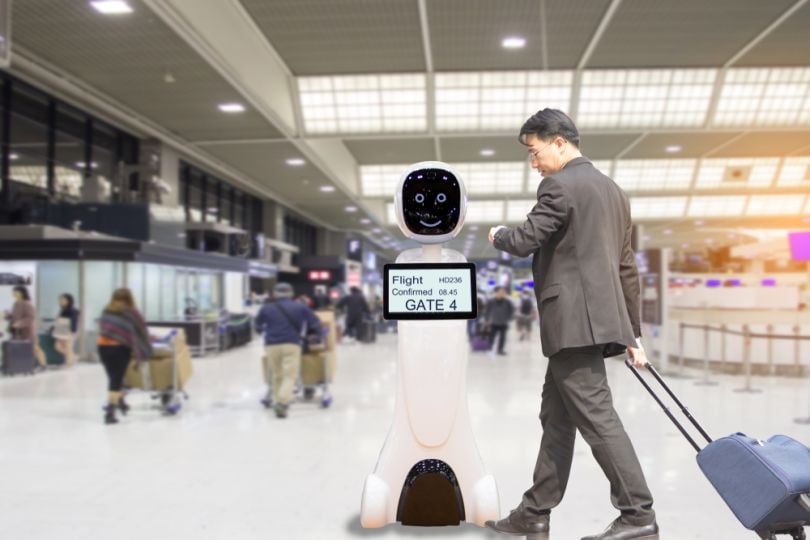
Nearly every traveler would say their airport experience has room for improvement. Hong Kong restaurant group Maxim believes that robots could be the key to bringing efficiency to the city’s international airport and has proposed a smart restaurant featuring 3D-printed meals prepared and served by robots, CNN reports.
"Raw materials will be freshly prepared in the smart kitchen by robotic arms and automatic machines,” George Mew, Maxim’s director of manufacturing, said to CNN.
If this concept sounds outlandish, perhaps a closer look at current airport operations would suggest that it should not. Robots are already punching the clock at airports around the world, from robots serving as gate escorts at Incheon International Airport in Seoul to robots assisting with security at New York City’s LaGuardia Airport.
Airlines and airports are itching to leverage robotics and automated vehicles, with the 2018 Air Transport IT Insights survey revealing that nearly half of the world's airlines and 32% of its airports are in pursuit of a partner to help them realize this.
Not a fan of check-in processes? You’re in luck if a report by UK-based inventory management company Vero Solutions holds up. The firm expects robots to replace check-in processes by 2030.
"Airport operators are experimenting with robots or intelligent machines to help check-in baggage or assist passengers find their way through busy airports."
"Airport operators are experimenting with robots or intelligent machines to help check-in baggage or assist passengers find their way through busy airports," Gustavo Pina, director of SITA Lab, a Swiss telecoms firm that specializes in air transport technology, told CNN. His company developed a robot called Leo for use in Geneva Airport to scan boarding passes and transport luggage.
Some robots get in on the fun. GLAdys, a robot guide at Glasgow International Airport in Scotland, charmed travelers singing and dancing to Christmas carols two years ago.
Still, don’t expect robots to put all human airport workers out of a job. "Our research shows that travelers prefer to use automated services rather than human interaction when completing simple steps in the journey, be it check-in, bag drop or boarding," Pina told CNN.
"However, when you have a problem with your journey or documentation, travelers would prefer to speak to a human being."



